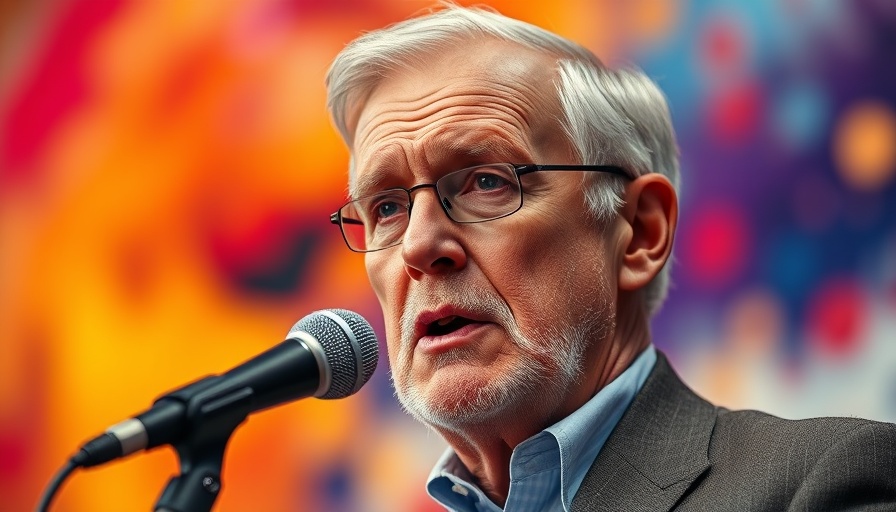
Understanding the Dire Situation in South Sudan
In a stark warning, UN Secretary-General António Guterres recently highlighted the escalating crisis in South Sudan, a nation grappling with rising violence and political instability. The complexities of this ‘dramatic and dire situation’ emerged prominently when Guterres addressed the press, underscoring the very real impact of political strife on the civilian population. With the detention of First Vice President Riek Machar under house arrest, tensions between the country's leaders have reached a boiling point, raising alarm bells domestically and internationally.
In 'UN Secretary General warns of 'dire situation' in South Sudan', Guterres brings to light a troubling scenario that calls for deeper analysis and understanding.
Civilian Impact: The Human Cost of Political Clashes
The ongoing turmoil has placed civilians at the epicenter of a conflict fueled by political rivalries. The violent clashes are not merely statistics; they represent the disruption and chaos that thousands of families endure every day in South Sudan. The urgent call from Guterres for a return to the 'politics of peace' cannot be overstated, as it is essential for restoring safety and stability in a country that has struggled since its independence from Sudan in 2011.
The Peace Agreement: A Pathway to Stability?
The peace agreement, considered the primary framework for achieving peaceful and fair elections slated for December 2026, offers a glimmer of hope amidst despair. However, its success hinges on the commitment of both current President Salva Kiir and first vice president Machar to put fears and grievances aside. Their leadership has historically shaped the nation’s trajectory, but their ongoing conflict could ultimately jeopardize the fragile peace that has been established.
Historical Context: Understanding Leadership Dynamics
To fully grasp the current situation, one must consider the historical context of South Sudan’s leadership. Kiir and Machar have played pivotal roles in the fight for independence, but their political rivalry has fostered divisions that have led to repeated cycles of conflict. Understanding this dynamic is crucial for anyone looking to decode the political landscape of South Sudan and its implications for future governance.
Global and Local Responses to the Crisis
International organizations and regional governments are closely monitoring the crisis. The African Union, alongside the United Nations, has a critical role in promoting peace and stability in the region. However, the effectiveness of these organizations in the face of entrenched local politics raises questions about the potential for external intervention to yield meaningful change.
Future Insights: Navigating the Road Ahead
As tensions rise, the future remains unpredictable. Observers speculate on various outcomes, from continued conflict to potential reconciliation efforts. What is certain is that the leadership of South Sudan must hear a unified message: prioritizing peace and prioritizing the well-being of their people is paramount. Without these commitments, the horizon may only darken for a country already burdened by strife.
Common Misconceptions: Addressing the Myths about South Sudan
There exist numerous misconceptions about South Sudan that skew perceptions of its political climate. One prevalent myth is that the conflict is solely an ethnic struggle. While ethnicity plays a role, the political motivations and historical grievances deepen the complexity of the situation. An informed understanding is crucial for engaging with the ongoing discourse surrounding South Sudan.
Take Action: Engaging with the South Sudan Crisis
As regional and global citizens, it is our responsibility to stay informed and advocate for peace in South Sudan. Organizations dedicated to humanitarian efforts in the region depend on awareness and resources to continue their work. Engaging in informed discussions, participating in events focused on African politics, and supporting international initiatives aimed at peacebuilding are vital steps toward fostering a stable future in South Sudan.
 Add Row
Add Row  Add
Add 




Write A Comment